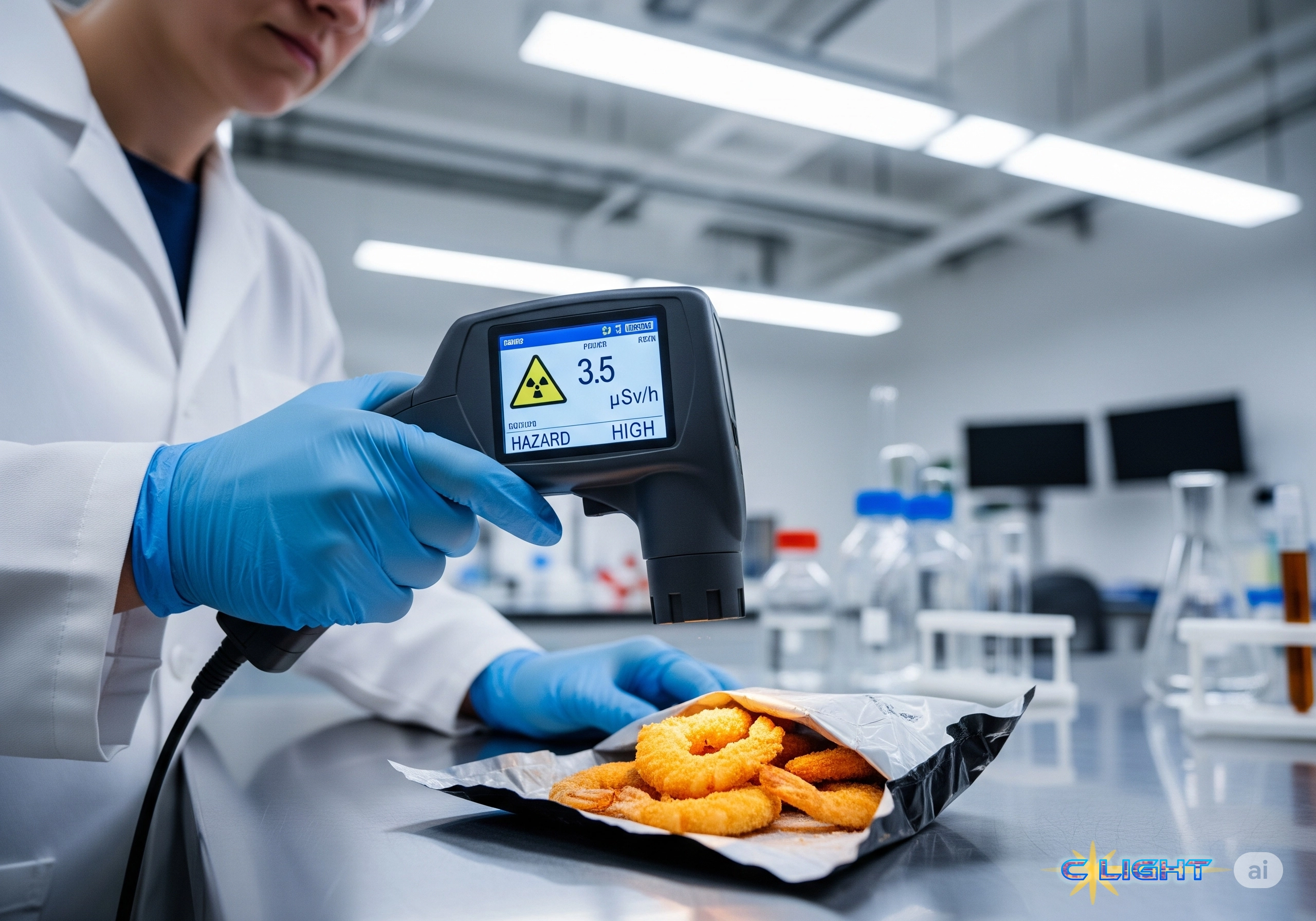4 minutes read time
The headline reads like the origin story for a B-grade monster movie or a new, crustacean-based Marvel superhero: Radioactive Shrimp. The immediate mental image is one of glowing seafood and the potential for bizarre, city-destroying powers. While the reality is far less cinematic, the story of how the radioactive isotope Cesium-137 was found in frozen shrimp products destined for Walmart shelves is a serious and fascinating case study in the immense challenges of safeguarding a complex global food supply chain, and how a regulatory success can simultaneously expose a troubling vulnerability.
How the System Worked… At First
The incident began not on store shelves, but at the nation’s front door. U.S. Customs and Border Protection (CBP) officers at four major ports—Los Angeles, Houston, Miami, and Savannah—detected the presence of Cesium-137 in shipping containers from an Indonesian seafood supplier, PT. Bahari Makmur Sejati, doing business as BMS Foods. The alert was passed to the Food and Drug Administration (FDA), which then collected and tested samples from the shipment. When one sample of frozen breaded shrimp tested positive for the isotope, the agency acted decisively, denying entry to the entire contaminated shipment. On the surface, it was a clear victory for the U.S. import safety system: a potentially harmful product was identified and intercepted before it could ever reach the American public.
The Breach and the Recall
The story, however, did not end there. In a development that shifted the narrative from a simple success to a more concerning scare, the FDA subsequently learned that other, related shipments from the same Indonesian supplier had been imported after the initial detection and had not triggered any contamination alerts. These products had already passed through the ports and been distributed to Walmart warehouses and stores across 13 states. This discovery revealed a significant vulnerability in the system. While the known-contaminated shipment was stopped, related products from the same potentially compromised facility had slipped through. This is what triggered the urgent, precautionary recall for three specific lots of Walmart’s “Great Value” brand frozen raw shrimp. Walmart confirmed it had issued a sales restriction, removed the products, and was offering full refunds, stating that “the health and safety of our customers is always a top priority.”
The Mystery of the Source
The central mystery of the incident is how a radioactive isotope like Cesium-137 could contaminate a seafood processing facility in Indonesia. The sources provide two plausible, though somewhat conflicting, clues. One report, citing the EPA, notes that Cesium-137 is used in industrial gauges and medical devices, suggesting the contamination could be the result of a localized, mundane (though still dangerous) failure of industrial or medical waste disposal. Another report, however, from the BBC, explicitly links Cesium-137 to the legacy of major nuclear disasters, noting it is a “principal source of radiation around Chernobyl and Fukushima.” This raises the more alarming possibility of a wider environmental contamination issue. Until the FDA and the supplier’s investigation is complete, the true origin remains an unsettling and open question.

Assessing the Public Health Risk
For consumers who may have purchased the recalled shrimp, health officials have been clear that the risk is low. The FDA stated that the levels detected were not high enough to “pose an acute hazard” and were below the official “derived intervention levels.” However, the agency issued the warning out of an abundance of caution, noting that even low levels could “represent a potential health concern” when combined with other sources of radiation, and that avoiding them reduces the risk of long-term health impacts like cancer. This assessment was supported by an independent food safety expert from Rutgers University, Donald Schaffner, who characterized the risk from the recalled shrimp as “quite low.”
The radioactive shrimp incident is a powerful reminder of the immense challenge of policing a globalized food system. While the initial interception was a clear success, the subsequent breach and recall highlight the near-impossibility of achieving a perfectly airtight system. The event serves as a crucial, if unsettling, test of the nation’s regulatory backstops and a sobering lesson in the constant vigilance required to ensure the safety of the food on our tables.
Discover more from Clight Morning Analysis
Subscribe to get the latest posts sent to your email.










